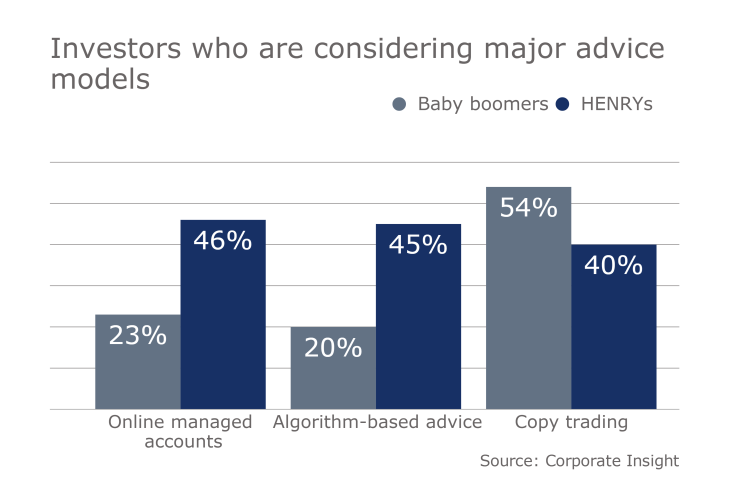CHICAGO — Who benefits the most from innovation in financial services and advice?
Not the client, says Ritholtz Wealth Management CEO Josh Brown. And if he's right, continued industry disruption could have long-lasting — and positive — ramifications for planners.
"The primary beneficiaries of innovation over the last 30 years, since the information and tech revolutions started, have been practitioners and advisers," Brown said during a Morningstar Investment Conference panel on financial industry advancements. Addressing the almost 2,200 industry professionals who attended the conference , Brown continued, "This audience has benefited more than our clients have."

The shift to 401(k)s from pensions, the rise of robo advisers, the surge in new investment products and other advances have created demand for personalized advice and new investing approaches, the panelists said.
"The toolkit has never been better," said Don Phillips, a managing director at Morningstar. "The people best able to take advantage of a stronger toolkit are the professionals."
ENTIRE COMMUNITIES LEFT OUT
At the same time, Phillips added, “half the people in America who have the ability to invest aren’t doing so.”
Entire communities of non-affluent investors are being overlooked in favor of capturing high-net-worth clients, or clients who will become HNW over time, he said. “How do we reach out to those people who are ignored or have turned their back on finance?”
Robo advising tools are one solution, Phillips said. Attracting more advisers who are women or people of color would also help, he added.
'I LIKE THAT GUY'
The more things change in financial services, one constant is likely to grow in importance.
“People do business with people they like,” said Brown. “I like that lady. I like that guy.”
The advisers who have the closest relationship with clients will profit the most as products and services proliferate, Brown added, while “the people who are further from the customer will have to compromise the most in terms of fees.”
And that relationship will be vital no matter what changes — and what doesn't.
"I study the history of markets to try to understand what the financial advice business has been like through the decades," said Brown. "The more I do that, the more I realize that what we call innovation is really packaging. Not everything new is necessarily new."





